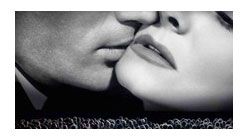“The fact is I am quite happy in a movie, even a bad movie,” admits Binx Bolling, the hero of Walker Percy’s 1961 novel The Moviegoer. It’s the same for a lot of us — cinema affects us in ways we don’t always understand, and even the worst films appeal to our nostalgia and sense memories in manners that defy the normal rules of taste and logic. (Currently, on my DVR: La Dolce Vita, a classic I know I should see at some point, and Gymkata, a truly terrible 1985 martial-arts flick I’ve watched a dozen times. Guess which one I’m going to turn on tonight?)
In The Big Screen, British-American film critic and historian David Thomson attempts to answer some fundamental questions about the world’s favorite hobby. How do we relate to the movies? “The cinema is the embodiment of ‘let there be light,’ ” he writes. But where does the light come from? Does it illuminate us or blind us?
Of course, these are difficult and possibly even unanswerable questions. But Thomson — arguably the world’s most intelligent student of the cinema — proves remarkably up to the task. The Big Screen is beautiful and expansive, “a love letter to a lost love” that has the capacity to change the way we look at film.
Thomson’s book is essentially a collection of new essays, covering movies from D.W. Griffith’s brilliant but notoriously racist The Birth of a Nation to the critically reviled Adam Sandler “comedy” Jack and Jill. While there’s not an even remotely boring chapter in the book, the centerpiece of the volume is formed of two long essays, “Sunset and Change” and “Film Studies,” in which Thomson jumps from topic to topic breathlessly, almost suddenly, but with transitions that somehow make more sense than they should.
It’s like listening for an hour to a smart, hyperactive friend discuss the art he loves the most; the downloading of information leaves you a little exhausted but mostly elated. Thomson has a gift for making his original observations sound almost obvious — film noir, he writes, “is the one genre that admits we’ll lose,” and Casablanca is “fake, foolish and fanciful beyond belief” but is still “the best fun.”

9(MDAzOTIwODA0MDEyNTA4MTM1OTcyMGJmMA001))

